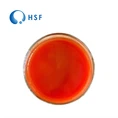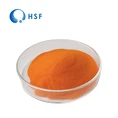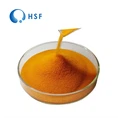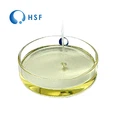In the B vitamin family, vitamin B7 is very inconspicuous and even ignored by many people, but it also has its own unique value and is indispensable to the human body.

Vitamin B7, also known as biotin, vitamin H or coenzyme R, is a water-soluble B vitamin. It is widely present in low concentrations in most animal and plant tissues, such as milk, egg yolk, lean meat, animal liver and kidney, as well as various fruits such as strawberries, mushrooms, grapefruit and grapes, as well as in brown rice, beer, yeast and wheat.
D-Biotin powder is a colorless or white crystalline powder, easily soluble in water, insoluble in ethanol, chloroform and ether, and has optical activity. It is not easily destroyed by acid, alkali, light and air at room temperature. It is stable to heat and can be sterilized at high temperature, but it will be decomposed and inactivated in case of strong alkali and oxidant.
Biotin is a factor discovered in the liver in the 1930s during research on yeast growth factors and rhizobia growth and respiration-promoting factors. It prevented hair loss and skin damage in rats fed raw egg protein.
Biotin is involved in the repair and regeneration of cells and improves the structure of keratin, the basic protein that makes up hair, skin and nails. Therefore, the clinical manifestations of lack of biotin are mainly damage to the skin, mucous membranes and nervous system. Long-term lack of biotin may lead to hair loss, peeling, dry skin, etc. It can also lead to decreased immune function.
Most dietary biotin is bound to protein, although some is present in free form. The protein-bound form of biotin is cleaved into biocytin and biotin oligopeptides upon ingestion, which release free biotin after further processing by biotinidase in the gut. Free biotin is then absorbed by the small intestine and mostly stored in the liver. Biotin is an important factor in the fixation of carbon dioxide by living organisms.





